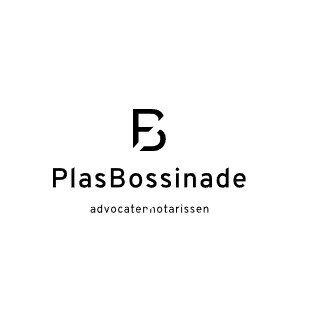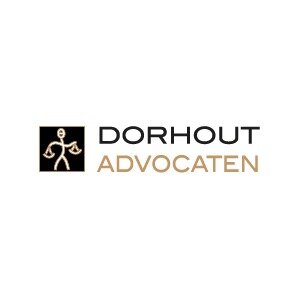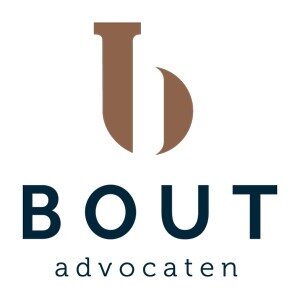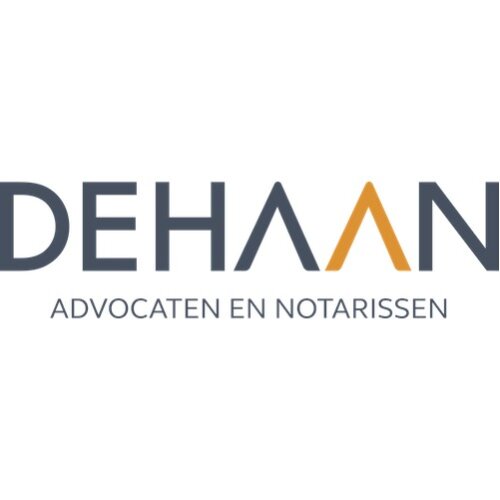Best Antitrust Litigation Lawyers in Groningen
Share your needs with us, get contacted by law firms.
Free. Takes 2 min.
List of the best lawyers in Groningen, Netherlands
About Antitrust Litigation Law in Groningen, Netherlands
Antitrust litigation in Groningen, Netherlands, is a specialized area of law addressing disputes and legal issues arising from competition and market practices. The primary goal of antitrust laws is to ensure fair competition and prevent monopolies or practices that restrict trade. In the Netherlands, these rules are set at both national and European Union (EU) levels. If you are involved in business activities in Groningen, understanding antitrust litigation is crucial because violations can lead to severe penalties, damages, or restrictions on business operations. The Authority for Consumers and Markets (ACM) enforces these laws within the Netherlands, including the Groningen region.
Why You May Need a Lawyer
Several situations may require you to seek expert legal assistance in antitrust litigation in Groningen:
- You are a business accused of price fixing, cartel formation, or collusion with competitors.
- Your company is subject to an investigation by the ACM or the European Commission for suspected antitrust breaches.
- You are a consumer or business harmed by anti-competitive behavior and wish to claim damages.
- You are unsure about how to comply with Dutch and EU competition laws in mergers, acquisitions, or joint ventures.
- Your organization needs to develop or update compliance programs to avoid violations.
- You are facing penalties or administrative fines for alleged anti-competitive practices.
- You want to report unfair practices by competitors affecting your business.
- You need legal representation in court disputes regarding antitrust violations.
Antitrust cases often involve complex legal arguments and sophisticated economic analysis, making professional legal guidance essential.
Local Laws Overview
Antitrust litigation in Groningen primarily involves two main legal frameworks:
- Dutch Competition Act (Mededingingswet): This law prohibits agreements and practices that restrict competition, such as cartels or abuse of market dominance. It also covers merger control and the role of the ACM in enforcement.
- EU Competition Law: The Netherlands is bound by EU rules, especially Articles 101 and 102 of the Treaty on the Functioning of the European Union (TFEU), which target anti-competitive agreements and abuse of a dominant position across member states.
In practice, the ACM can investigate, issue fines, or order companies to change their practices. Businesses and individuals can also bring private antitrust claims in Dutch civil courts. The local courts in Groningen follow national and EU precedents. Proceedings may involve damage claims, injunctions, or challenges to regulatory decisions.
Frequently Asked Questions
What is antitrust litigation?
Antitrust litigation refers to legal proceedings that resolve disputes about competition law violations, such as cartels, price fixing, or abuse of market dominance.
Who enforces antitrust laws in the Netherlands?
The Authority for Consumers and Markets (ACM) enforces antitrust laws in the Netherlands, working alongside the European Commission for cross-border issues.
What are the penalties for violating antitrust law?
Penalties can include significant fines, court-ordered changes to company practices, and liability for damages suffered by others due to anti-competitive behavior.
Can individuals and small businesses be involved in antitrust litigation?
Yes, both individuals and small businesses can be parties in antitrust disputes, either as claimants alleging harm or as respondents accused of anti-competitive conduct.
How do I know if my business is complying with antitrust laws?
Consulting a legal expert is the best way to review practices, policies, and contracts to ensure compliance with Dutch and EU competition law.
What should I do if I am investigated by the ACM?
Seek immediate legal representation, cooperate with lawful requests, and avoid destroying or withholding information relevant to the investigation.
Can I claim damages if I have suffered harm due to anti-competitive conduct?
Yes, Dutch law allows victims of anti-competitive practices to claim compensation in civil courts for losses suffered.
Do antitrust cases in Groningen go to local courts or national courts?
They can be handled by local courts in Groningen, depending on the nature of the dispute, but complex or high-profile cases often proceed to specialized chambers or national courts.
How long does antitrust litigation usually take?
The duration depends on the complexity of the case. Investigations and proceedings can last from several months to several years.
What evidence is important in antitrust cases?
Key evidence includes internal communications, contracts, meeting records, market analyses, pricing structures, and correspondence with competitors or partners.
Additional Resources
If you are seeking further information or support, consider the following resources related to antitrust litigation in Groningen and the Netherlands:
- Authority for Consumers and Markets (ACM): The main governmental body responsible for enforcing antitrust and competition laws.
- European Commission - Competition Directorate: Handles EU-wide competition cases involving parties in the Netherlands.
- Local Law Societies: The Groningen Bar Association can assist in finding qualified antitrust lawyers in the region.
- Dutch Judiciary (Rechtspraak): Provides access to court procedures, judgments, and information about competition litigation processes.
- Legal Aid Organizations: Offer guidance and support for individuals or businesses with limited resources seeking antitrust legal advice.
Next Steps
If you believe you require legal assistance with an antitrust matter in Groningen, consider the following approach:
- Gather documentation and evidence related to your case, such as contracts, communications, or notices from authorities.
- Contact a local lawyer specialized in competition and antitrust law for an initial consultation to assess your position and potential risks.
- Discuss possible strategies, including compliance reviews, defense options, or prospects for claiming damages.
- If facing an investigation or legal action, ensure all deadlines are met and required information is provided to authorities or courts.
- Regularly communicate with your legal representative and follow their advice closely to maximize your chances of a favorable outcome.
Taking early and informed action is essential for managing risks and protecting your interests in antitrust litigation in Groningen, Netherlands.
Lawzana helps you find the best lawyers and law firms in Groningen through a curated and pre-screened list of qualified legal professionals. Our platform offers rankings and detailed profiles of attorneys and law firms, allowing you to compare based on practice areas, including Antitrust Litigation, experience, and client feedback.
Each profile includes a description of the firm's areas of practice, client reviews, team members and partners, year of establishment, spoken languages, office locations, contact information, social media presence, and any published articles or resources. Most firms on our platform speak English and are experienced in both local and international legal matters.
Get a quote from top-rated law firms in Groningen, Netherlands — quickly, securely, and without unnecessary hassle.
Disclaimer:
The information provided on this page is for general informational purposes only and does not constitute legal advice. While we strive to ensure the accuracy and relevance of the content, legal information may change over time, and interpretations of the law can vary. You should always consult with a qualified legal professional for advice specific to your situation.
We disclaim all liability for actions taken or not taken based on the content of this page. If you believe any information is incorrect or outdated, please contact us, and we will review and update it where appropriate.












